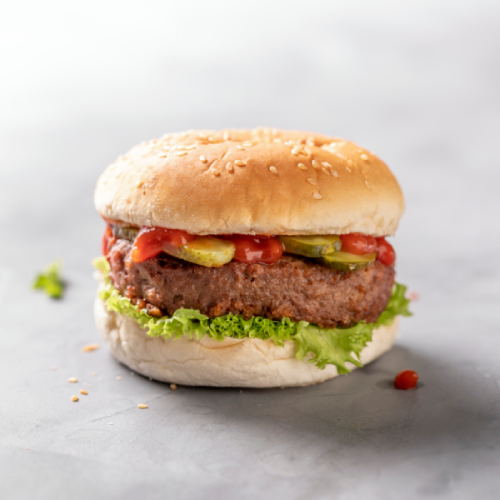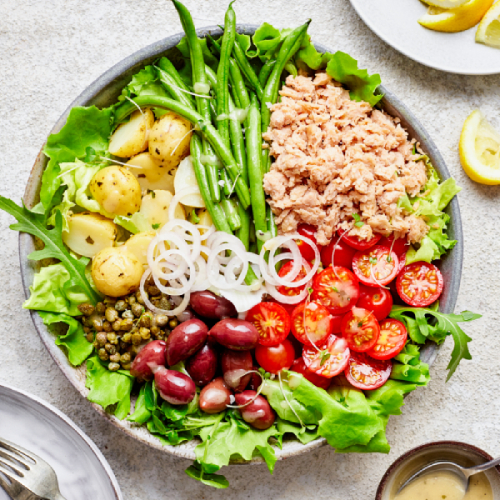Plant-based sales may have stalled in recent times[1] but innovation hasn’t. Brands are tapping into consumer demands to create meat, seafood, and dairy alternatives that can still thrive in a more challenging marketplace. Using consumer data and in-house market research, the EXBERRY® experts have looked at how plant-based brands are defying the downturn – and how color can boost success.
Diverse Delights
To reach a broader consumer base, manufacturers need to not only develop products with improved recipes but increase product variety. Brands are pioneering exciting new plant-based alternatives to animal products, such as 3D printed vegan meat and egg alternatives complete with shells and yolks. Other manufacturers are putting the focus on natural, healthy plant-based ingredients in products ranging from high-fiber snack bars to vegan protein balls. When launching new products, color plays an important role, helping to send out a positive first impression and attract the interest of casual shoppers.
Farming the future
Sustainability is hugely important to modern consumers. Innova research shows 69% worldwide prefer products that mention the benefits of their sourcing or farming method on the pack.[2] They want information on how brands are working to cut their carbon footprint as well as how and why their farming practices bring benefits. Furthermore, 56% of consumers worldwide say they are concerned about the environmental pollution to land caused by farming and 52% about ethical treatment of farmers.[3] Using sustainable, traceable ingredients – including colors – can help reassure consumers that the products are guilt-free and conveniently nutritious.

Sensory is essential
Sensory qualities are crucial for plant-based meat alternatives. Research shows that 62% of global consumers who do not eat meat substitutes believe that the products lack taste. Texture is another key factor in plant-based meat, with consumers looking for a similar juiciness, tenderness, hardness, and chewiness to their animal-based counterparts. Appearance can be every bit as important. Three-quarters (74.5%) of consumers worldwide consider it important that the appearance of meat substitutes is the same as real meat.[4] A review of studies into plant-based meat also found that it is important for meat alternatives to mimic the way real meat changes color during the cooking process.[5]
Save our oceans
Seafood substitutes are gaining momentum worldwide. There is now a wide variety of fish and shellfish alternatives on offer, from canned tuna and smoked salmon to shrimp and caviar. A 2023 report by McKinsey & Company found that the alterative seafood market has significant global potential and can help to lessen the environmental impacts of overfishing while providing a healthy alternative.[6] However, as the report notes, consumers expect a high level of quality from alternative seafood. Color is an important part of that, with a realistic appearance helping to convince shoppers that products will provide an accurate replica of the real thing. Products therefore need to replicate details such as the white stripes on salmon fillets and coral stripes on shrimp.

EXBERRY® is a plant-based, sustainable coloring solution that can deliver a full spectrum of shades in all types of plant-based food. It can be used to create meat alternatives that change color as well as seafood substitutes including salmon, tuna, shrimp, and caviar.
[1] Euromonitor ‘Plant-Based Foods Face Key Challenges’ (March 2023)
[2] Food & Beverage Insider ‘Redefining value leads Innova’s 2023 F&B trends’ (November 2022)
[3] CG Gurus ‘Future Trends, Life in 2030 – Global Report’ (February 2023)
[4] FMCG Gurus ‘Custom Survey – Global and Regional -Meat & Plant-Based Protein’ (2022)
[5] He, J. et al. ‘A review of research on plant‐based meat alternatives: Driving forces, history, manufacturing, and consumer attitudes’ Comprehensive Reviews in Food Science and Food Safety (2020)
[6] McKinsey & Company ‘The next wave: Alternative-seafood solutions’ (September 2023)
